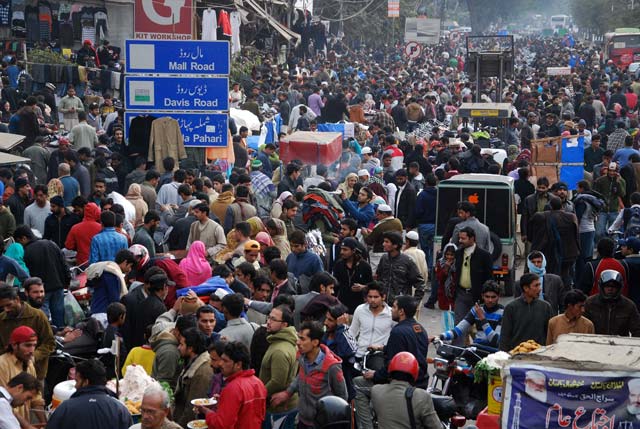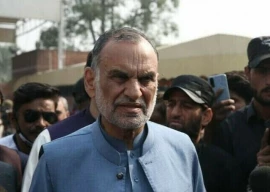
Pakistan's current population stands a 188 million, whereas in July 2015, world population reached 7.3 billion.
The findings were revealed in a report released by Population Division of the Department of Economic and Social Affairs of the United Nations.
The report states that between 2015 and 2050, half of the world’s population growth is expected to be concentrated in nine countries, including Pakistan, India, Nigeria, Democratic Republic of the Congo, Ethiopia, United Republic of Tanzania, United States of America, Indonesia and Uganda.
The 2015 revision forecasts population trends on global, regional and national levels indicating that populations of six of the 10 largest countries in the world are expected to surpass 300 million, which include China, India, Indonesia, Nigeria, Pakistan, and United States of America.
 PHOTO: ECONOMIST
PHOTO: ECONOMISTOn the other hand, a decline in population is predicted for 48 countries in the same time period (2015-2050). Among them the countries expecting to experience a more than 15% decline include: Bosnia and Herzegovina, Bulgaria, Croatia, Hungary, Japan, Latvia, Lithuania, Republic of Moldova, Romania, Serbia, and Ukraine.
The UN predictions suggest that the world population is growing at a slower rate than a decade ago but we’re adding 83 million people annually nonetheless.
Read: World Population Day: The power of birth
While the growth predictions indicate the progress made in reducing child mortality rates and swelling life expectancy rates, concerns remain rife as many challenges are yet to be overcome.
Read: Women in rural Pakistan champion the cause of population planning
The report raised concerns about how the governments in the countries will manage these growing populations. Jennifer Blanke, who heads the Forum’s Global Challenge Initiative on Economic Growth and Social Inclusion, expressed her concern saying:
“If these countries are to meet the needs of their rapidly growing populations, they have to be able to deliver both sustainable economic growth and social inclusion. But while almost everyone agrees with that, we’re still struggling to establish the best way of achieving it. That’s something political, business and civil society leaders will need to work together on, and is indeed the main goal of the initiative I’m leading.”



1730788481-0/BeFunky-collage-(19)1730788481-0-165x106.webp)



1730786905-0/£300,000-(1)1730786905-0.png)







1730706072-0/Copy-of-Untitled-(2)1730706072-0-270x192.webp)
COMMENTS (1)
Comments are moderated and generally will be posted if they are on-topic and not abusive.
For more information, please see our Comments FAQ